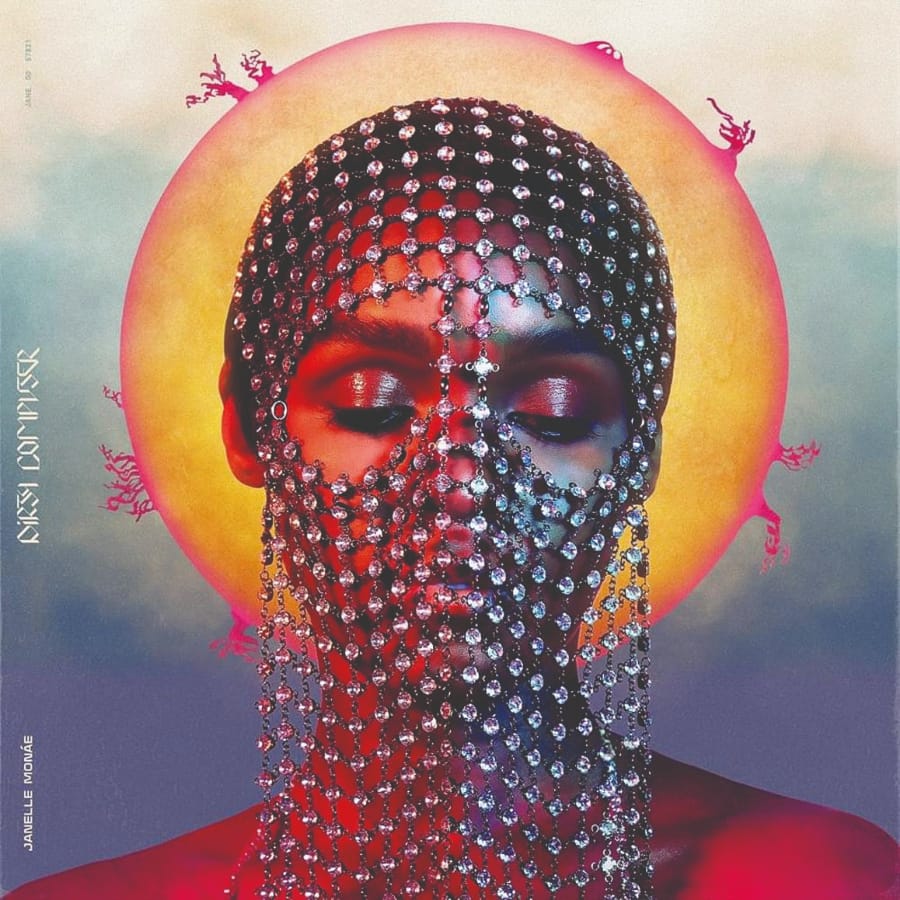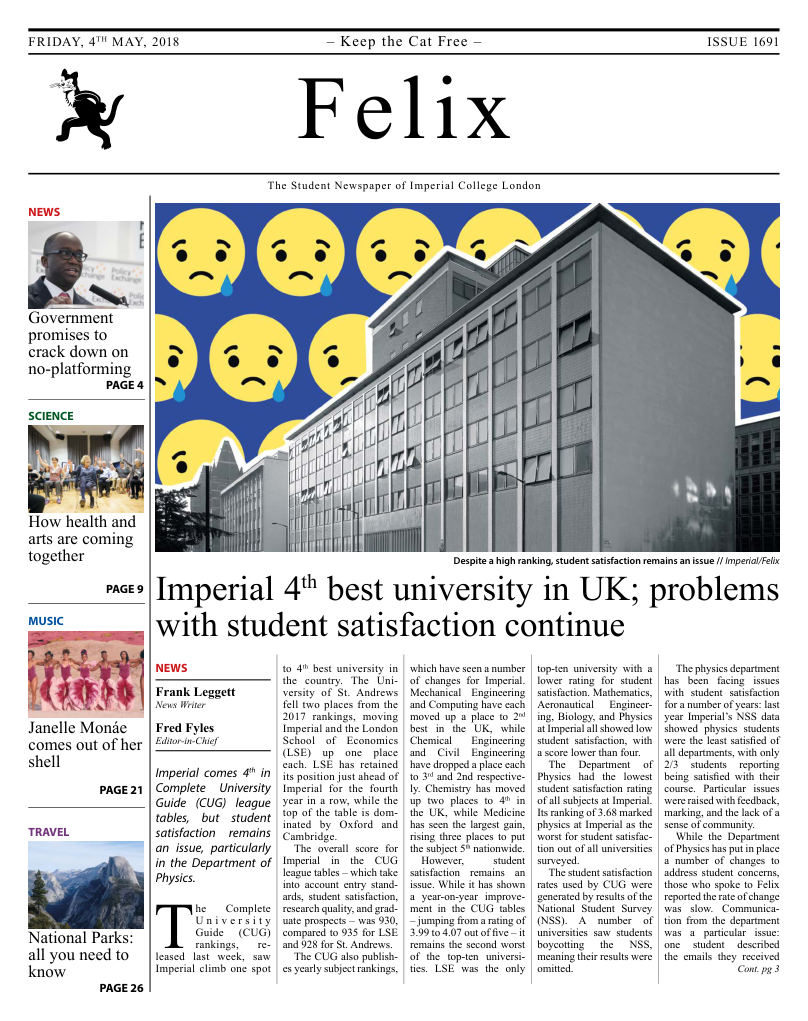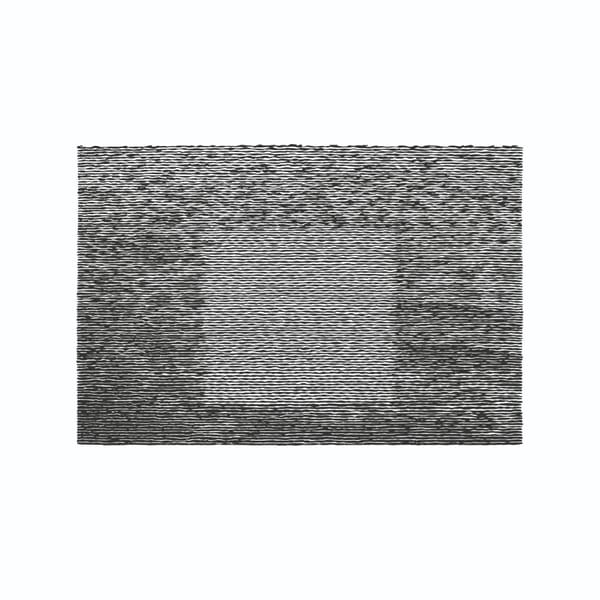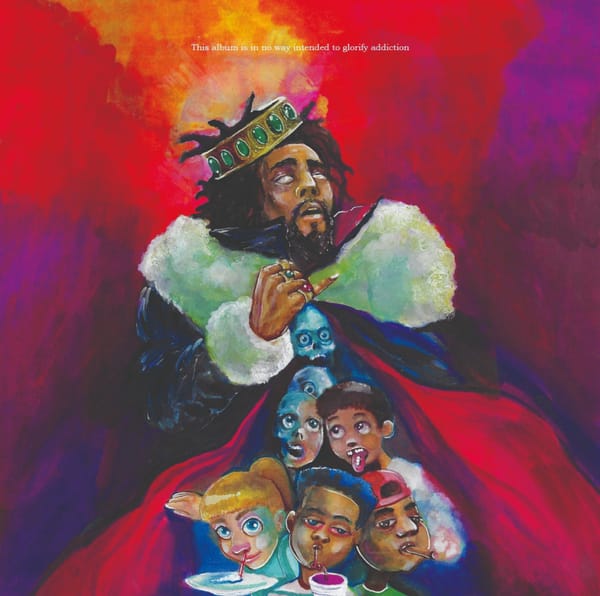American Dream: Dirty Computer is the truth Janelle Monáe no longer wants to hide
Monáe steps out of Cindy Mayweather’s shadow in her most powerful album yet.

Janelle Monáe began her career by adopting an android alter-ego, Cindy Mayweather. In singing about oppression, forbidden love, and the struggle to be free in Cindy’s guise, she joined the tradition of artists like Ann Leckie, who see stories about Artificial Intelligence to be more than science fiction fantasy divorced from the world around us, but rather as metaphors for the lives of people who are marginalised and do not fit the mould of the rich, cis, straight, white, and male. Cindy, for Monáe, was a way of speaking out whilst keeping her listeners at an arm’s length – we were able to know about Monáe’s feminism, her politics, but not about her true passions.
In the five years since the release of her last album, The Electric Lady, Monáe has appeared in the Oscar winning Moonlight, about a young black gay boy growing up in Florida, and in Hidden Figures, where she played the first black woman in America to gain a degree from a white college during the Jim Crow era. In hindsight, these roles seem like the prelude to Dirty Computer, an album that, at its heart, wants to be a touchstone for people who do not easily get representation in mainstream culture. With a title that hints at the sexy, subversive, and (emotionally) compromised songs that lie within, this album is Monáe’s most confessional. Finally, we see Monáe step out of Cindy’s shadow and share her unfiltered self.
“The transformation of silence into language” wrote Audre Lorde “is an act of self revelation”. Listening to Dirty Computer is the act then of witnessing Monáe finding her truest voice after so many years of silence. We get the sense that she has felt burdened by her evasion: “I don’t want to live on my knees/I just want to tell the truth” she declares in ‘Crazy Classic Life’, a smooth R&B track that is louche and hedonistic on the surface, but barbed with emotional punch. It isn’t hard to read between the lines to figure out what the truth that has been haunting Monáe is: questions about her sexuality have followed her since her debut album. ‘Pynk’, a collaboration with Grimes, appears half way through Dirty Computer to lay the rumours to rest. It is a blissed-out, airy, funk celebration of the female gaze and sapphic desire, and about as explicit as you could ask for – in a fun, erotic, and somehow rather touching run of lyrics, Monáe details all things pink: tongues and vaginas, yes, but also eyelids, brains, hearts. The accompanying video underscores the queer vibes: in several scenes Monáe sports a pair of gloriously unsubtle vulva trousers with Solange-like insouciance as maybe-girlfriend Tessa Thompson pokes her head between the singer’s legs. “Pink”, Monáe concludes, “is the truth you can’t hide.”

The exuberance of ‘Pynk’ is reflected in the afro-beats stylings of ‘I Got the Juice’, a track featuring Pharell, the synth heavy ‘Make Me Feel’ which is suffused with Prince’s influence, and ‘I Like That’, an ode to self love and resilience. In other places, we see Monáe the activist take centre stage: in ‘Screwed’, a sex-drenched pop number featuring Zoë Kravitz, Monáe offers commentary on sex, power, and inequalities. The nihilism of ‘Screwed’ shows hints of an anger that is refined and amplified in the magnificent ‘Django Jane’, a swaggering, braggadocious rap distillation of her speech at the Women’s March in 2017. Referencing everything from Pussy Riot to Shonda Rhimes, the feminist polemic ends with the fantastically arch line “let the vagina have a monologue”.
Yet throughout, Monáe circles back to truth-telling – its liberations and the dangers that allowing yourself to be visible bring. In the opening bars of ‘Don’t Judge Me’ Monáe’s voice is gravelly, almost hoarse; raw in a way that is entirely disarming. “Even though you say that you love me/Is it me or do you love my disguise?” she asks us. Organ refrains weave into the psychedelic-funk cadences of the following track, ‘So Afraid’, hinting perhaps to Monáe’s religious upbringing and struggles to reconcile her faith with her sexuality.
That the album’s bright harmonies, purposeful defiance, and joyful, exhilarating guitar riffs have this undercurrent of melancholy makes Dirty Computer perhaps the most compelling and true representation of a coming out experience. Monáe’s talent and bold ambition has always set her apart, her newest album reveals a side of her heretofore unseen. Rather than the other-worldly Cindy who kept the world at bay, this is a woman who, despite her fears, has unflinchingly embraced her truth, dared to be visible as a black, queer woman – a combination that the world doesn’t always welcome. Dirty Computer is Monáe at her most human, most vulnerable, and most powerful; it cements her as one of music’s true icons.
Dirty Computer
5 Stars
Artist: Janelle Monáe. Label: Wondaland._ Top Tracks_: Pynk, Django Jane, Crazy Classic Life. For Fans Of: Solange, Prince. 49 minutes







